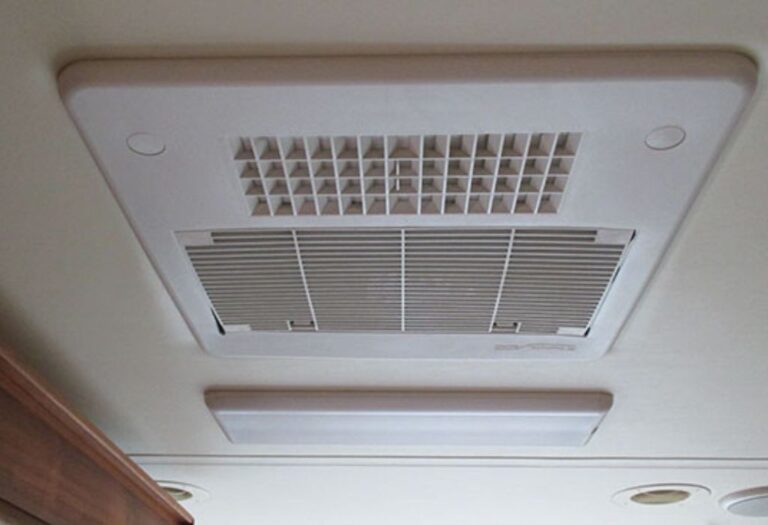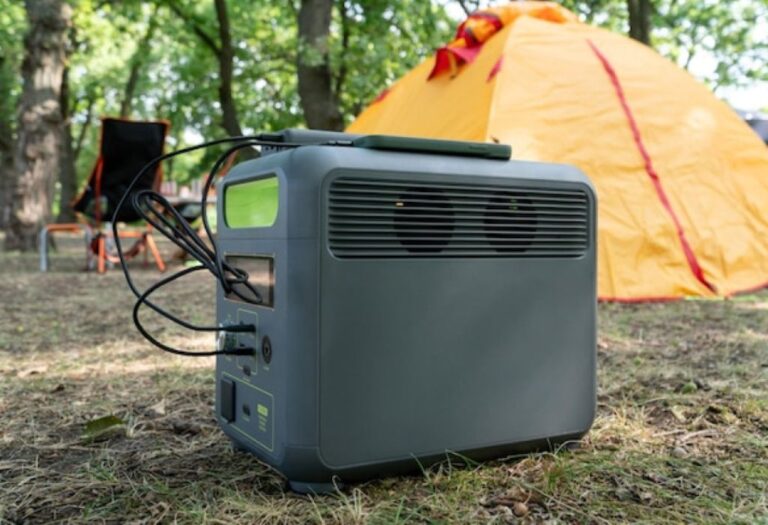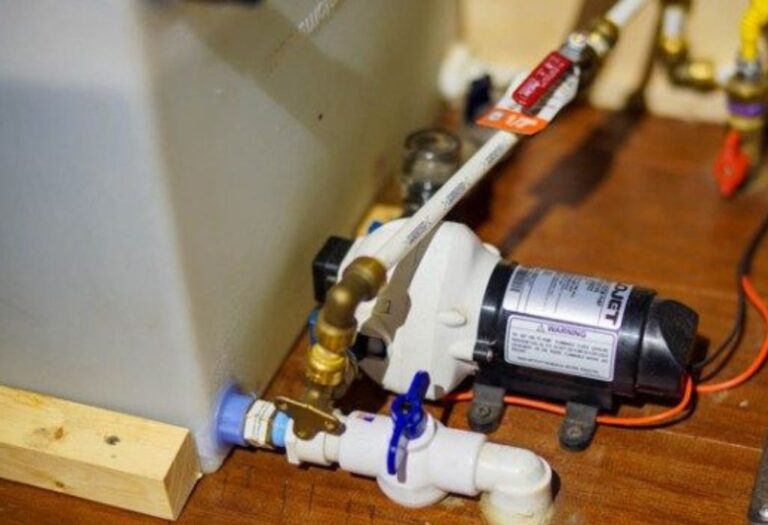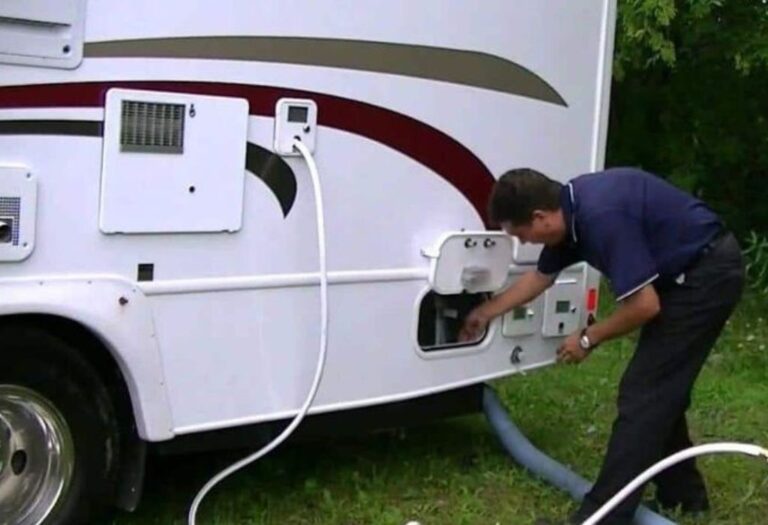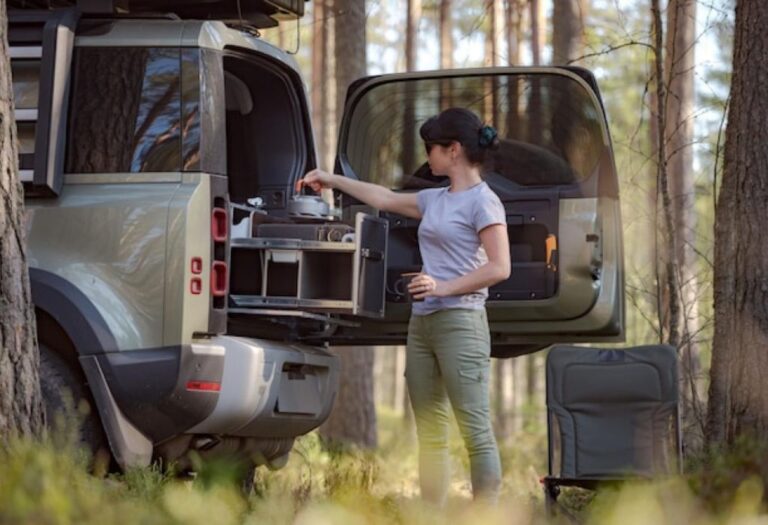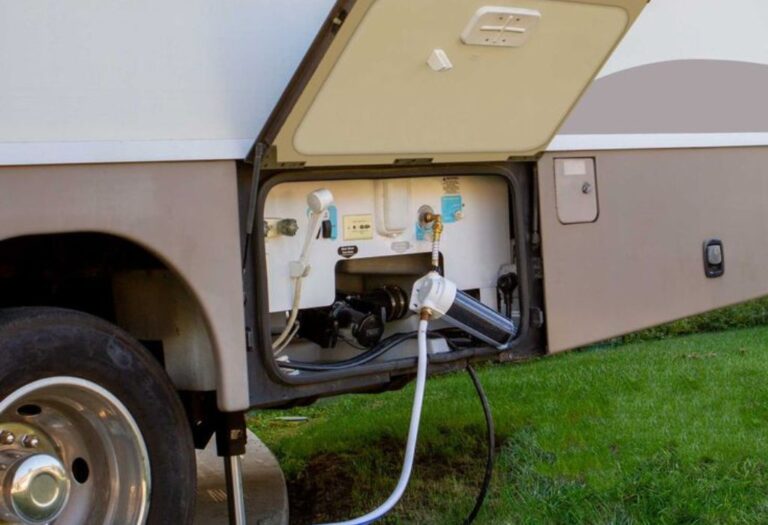How Long Will an RV Refrigerator Run on Battery?
A family parks their RV at a quiet boondocking site, eager to enjoy nature without hookups.
Hours later, one question lingers in their mind: how long will my RV refrigerator run on battery before the food spoils?
The challenge is real for travelers who rely on cold storage far from shore power. An RV refrigerator draws steady energy, and when the only supply is a battery, every amp-hour counts.
Miscalculating can mean warm drinks, spoiled meals, and a cut-short trip.
Curiosity drives many owners to search for answers. The truth is that runtime depends on several factors: the type of fridge, the size and chemistry of the battery bank, the outside temperature, and even how often the door is opened.
A 12V compressor refrigerator can use 60–150 amp-hours per day depending on conditions, while absorption fridges run efficiently on propane but consume 12V power for controls. (source)
Statistics show that a single 100Ah battery may only support a mid-size RV fridge for part of a day, while larger lithium banks of 200–300Ah can keep food cold for multiple days off-grid.
Solar panels, alternator charging, and generators all play a role in replenishing that energy.
The good news is that smart planning can make boondocking stress-free.
By understanding how batteries and refrigerators work together, RV owners can predict runtimes more accurately, extend cooling time, and avoid unexpected shutdowns.
This guide explains the formulas, real-world examples, and proven strategies to maximize refrigerator runtime on battery power.
The following sections break down each factor so you can enjoy your trip with confidence and keep your food safe no matter where you camp.
Quick Answer + What Actually Determines Runtime

An RV refrigerator can run anywhere from a few hours to several days on battery power. The exact time depends on your fridge type, battery capacity, and overall energy use.
The basic formula is simple: usable battery capacity (Ah) ÷ average fridge draw (Ah per hour) = estimated runtime. Adjust this for ambient temperature, door openings, and inverter efficiency if using a residential AC fridge.
A 12V compressor fridge often consumes 60–150Ah per day, which means a single 100Ah lead-acid battery may last less than one day. In contrast, a 200Ah lithium battery bank could power the same fridge for 2–3 days before needing recharge.
Absorption fridges behave differently. On propane, they use very little battery power, but on electric mode, their draw is too high for practical battery-only operation.
Other loads in the RV—such as lights, fans, and water pumps—reduce the battery available for the fridge. This makes energy management and planning critical for off-grid trips.
Can a single 100Ah battery run a 12V RV fridge overnight?
Yes, but only in mild temperatures. Many fridges use 60–150Ah per day, so one battery is often marginal.
Do absorption fridges run well on battery alone?
Not in electric mode. They require too much power and are best run on propane, with batteries only powering controls.
Will a residential fridge run a full day on batteries?
Some rigs report 12–15 hours on battery before recharge is required, depending on setup.
What daily Ah use should be planned for a 12V fridge?
Plan for 100–150Ah per day as a safe working range.
Rule of thumb for boondocking?
Aim for at least 200Ah usable battery capacity for comfort with a 12V RV refrigerator.
Know Your Fridge Type (12V compressor vs absorption vs residential)
Not all RV refrigerators are the same, and runtime varies greatly by type. Knowing your fridge style is the first step in predicting battery life.
12V compressor fridges are the most battery-friendly. They draw 3–6A when cycling and typically use 60–150Ah per day depending on temperature.
Absorption fridges work best on propane. When set to electric mode, they consume far more power than most battery banks can provide.
Residential AC fridges are efficient per cubic foot but need an inverter. This adds a 5–15% efficiency loss that shortens runtime.
Which lasts longest on battery only?
12V compressor models generally outperform absorption fridges on electric mode.
Does propane mode still use 12V?
Yes, controls and fans still draw about 0.8–1A.
Is leveling a factor?
Absorption models must stay level, but compressor fridges are tolerant.
Are portable 12V fridges similar?
Yes, smaller compressor coolers may use as little as 0.5–5A when running.
Will inverter overhead matter for AC fridges?
Yes, expect 5–15% extra draw from the inverter.
Battery Math You Can Use (with examples)
To estimate runtime, you need your fridge’s average draw and your battery’s usable capacity. Lead-acid offers about 50% usable capacity, while lithium offers 80–100%.
Example 1: A 200Ah lithium battery (160Ah usable) running a fridge averaging 5A per hour for 12 hours per day consumes 60Ah/day, giving about 2.5 days of runtime.
Example 2: A 100Ah lead-acid (50Ah usable) powering a fridge that draws 5A per hour for 12 hours per day uses 60Ah/day, draining the bank in less than a day.
Example 3: A residential fridge averaging 80W through an inverter on a 1,000Wh battery provides about 10–11 hours of runtime before reaching reserve levels.
What is duty cycle?
It is the percentage of time the compressor runs. Hotter weather increases this.
How do other loads change the math?
Fans, lights, and pumps consume battery power, reducing runtime.
Do voltage cutoffs stop the fridge early?
Yes, many fridges and battery systems shut down early to protect batteries.
Is “amp-hours per day” better than “amps”?
Yes, Ah/day reflects actual daily consumption.
Fast way to estimate runtime?
Divide usable Ah by average Ah per hour.
Real-World Ranges You Can Expect

A 12V compressor fridge may consume 60–150Ah per day depending on conditions. That’s enough to drain a single 100Ah lead-acid battery in less than a day.
A 200Ah lithium battery can power the same fridge for 2–3 days before recharging. This is why most boondockers prefer larger lithium banks.
Residential AC fridges are more demanding. Many RV owners report only 12–15 hours of runtime before batteries require charging.
Absorption fridges on propane barely touch the battery, often lasting days or weeks with only a small control board draw.
Why do some last only 8–12 hours?
Small battery banks and high ambient temperatures shorten runtime.
Can I get 2–3 days?
Yes, with at least 200Ah usable and moderate conditions.
What about winter?
Cold weather lowers duty cycle, extending runtime.
Is brand a factor?
Yes, compressor efficiency varies by manufacturer.
How much buffer should I plan?
Always budget 20–30% more capacity than your calculated need.
Extending Runtime Without Plugging In
Small adjustments can make a big difference in battery life. Pre-cool the fridge on shore power, load food cold, and add water jugs for thermal mass.
Park in the shade and avoid opening the door unnecessarily. Even a few extra door openings can shorten runtime by hours.
Set the temperature moderately, around 37–39°F. Running the fridge colder consumes significantly more power.
Clean condenser coils and ensure vents are clear. Poor airflow makes the compressor work harder.
Does pre-cooling help?
Yes, lowering interior temp before unplugging reduces startup load.
Do ice packs or frozen bottles help?
Yes, they add thermal mass and stabilize temperatures.
How much does shade matter?
It reduces ambient temperature and compressor workload.
Should I change setpoints at night?
Slightly higher temps save power while still keeping food safe.
Is leveling still important?
For absorption fridges, absolutely.
Charging While Camping (Solar, Alternator, Generator)
Solar panels, alternators, and generators are the main ways to replenish batteries off-grid. Each has pros and cons.
Solar can offset 100–160Ah/day with a 400W array in good sun. Portable panels can help when shaded.
Alternators with DC-DC chargers provide fast charging during travel days, keeping batteries topped up.
Generators are reliable for bulk charging, often used in short daily runs.
How much solar do I need for a 12V fridge?
At least 200Ah battery storage and 300–400W solar for multi-day trips.
Can the tow vehicle keep up?
Yes, with a DC-DC charger connected while driving.
Best time to run a generator?
During bulk-charging stages or meal prep.
Do portable panels help in shade?
Yes, they can be positioned for maximum sun.
Is a battery monitor useful?
Yes, it shows state of charge and prevents surprises.
Special Case—Absorption Fridge on Propane
Absorption fridges are most efficient on propane. The battery then only powers controls and fans, drawing about 0.8–1A.
On electric mode, absorption fridges consume large amounts of power and are not practical on batteries alone.
How much 12V draw on propane?
Around 0.8–1A for controls and fans.
How long will the battery last in propane mode?
Often days to weeks depending on other DC loads.
Is electric mode practical on inverter?
No, the heating element consumes too much energy.
Any safety tips?
Keep the fridge level, vents clear, and burner clean.
Upgrade path?
Many switch to 12V compressor models for battery efficiency.
Troubleshooting Short Runtime

If your fridge dies too soon, check the basics: airflow, seals, battery health, and parasitic loads. Small problems often add up.
Voltage drop from undersized wiring is common. Long cable runs and poor connections reduce efficiency.
Aging batteries may show full charge but have reduced capacity. Load testing is the only way to confirm their true state.
Fridge quits overnight—why?
Low-voltage cutoff stops operation.
Batteries “full” but die fast?
They may be sulfated or degraded.
Fridge draws more than spec?
Check vents and fans for airflow problems.
SOC drops even with solar?
Shade, clouds, or panel angle issues may be the cause.
Is wiring size important?
Yes, undersized wires cause voltage drop and wasted power.
Conclusion
How long will my RV refrigerator run on battery depends on battery size, fridge type, and camping conditions. With a 200Ah lithium bank, a compressor fridge can last multiple days, while smaller setups may struggle overnight.
Smart practices—pre-cooling, adding solar, and monitoring battery state—extend runtime and reduce stress. Absorption fridges on propane give the longest off-grid peace of mind, but 12V compressor models are the most efficient choice for battery use.
Plan for your fridge’s daily amp-hour use, size your battery bank accordingly, and add 20–30% headroom. With preparation, cold food and worry-free camping are possible no matter where the road leads.
I’m David R. Coleman, the founder, lead writer, and lifelong tool enthusiast behind GarageToolPro.com. With years of experience in automotive repair, woodworking, and home DIY projects, I created this platform to share practical tips, detailed tool reviews, and step-by-step guides that help mechanics, hobbyists, and homeowners get the job done right the first time.

